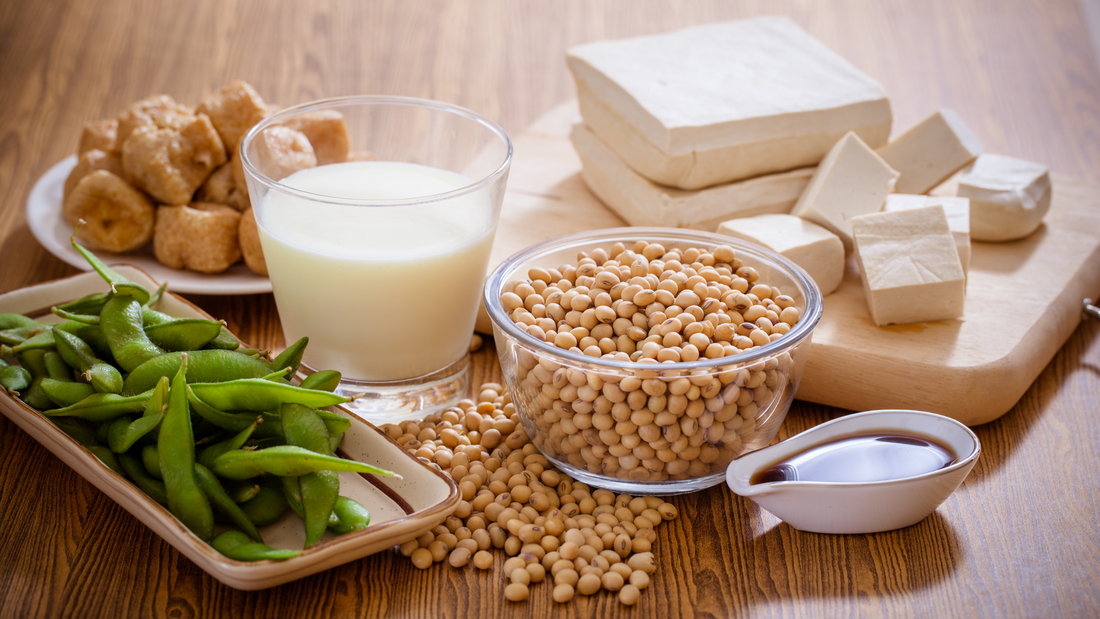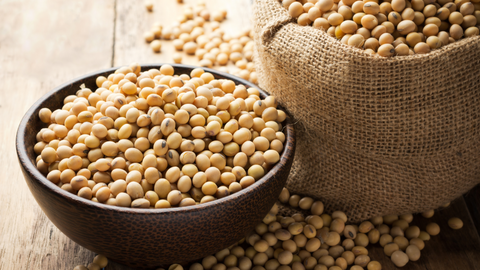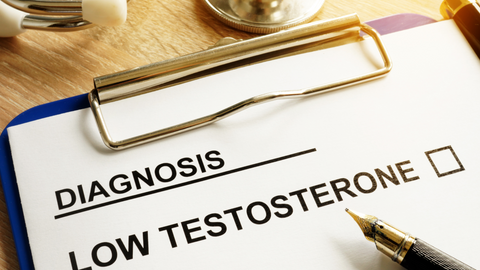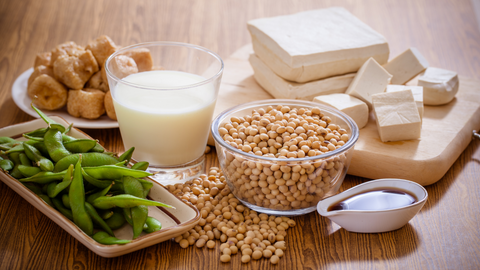Is Soy Good For Men?

The pejorative label of “soy boy” is often used to describe men who lack stereotypical masculine qualities. The term has recently been made popular to describe men who support feminism, multi-culturalism, environmentalism, and sometimes animal rights – putting forth narratives that such men are “soft, and delicate.” When being examined scientifically, however, being a “soy boy” has nothing to do with politics or gender identity. The latest research is exposing the relative nutritional ignorance of those who use this derogatory term. Heck, even Men’s Health magazine is getting on the tofu bandwagon! [1] As a self-identified dietary “soy boy,” I would like to give men three reasons why we should all become “soy boys.”
1. Soy Reduces the Risk of Heart Disease and Cancer

Heart disease and cancer are the first and second leading causes of death in America. [2] Soy reduces cardiovascular disease and coronary heart disease risk factors by lowering LDL cholesterol, lowering blood pressure, and reducing the risk of developing atherosclerosis. Soy also promotes weight loss, reduces inflammation, and reduces oxidative stress, which can lead to cancer and otherwise accelerate the aging process. [3] [4] One 2018 meta-analysis promotes soy to reduce the risk of prostate cancer. [5] Furthermore, the American Institute of Cancer Research has reversed its stance on soy as being a cancer-causing food or as a general risk for cancer survivors. [6] One meta-analysis shows that soy may reduce the risk of prostate cancer by as much as 26%. [7]
2. Soy Provides a Robust Amino Acid Profile

Amino acids are the building blocks of protein. There are nine amino acids that we must get from food. These are called essential amino acids. Contrary to the meat and dairy industry propaganda, all plant foods have all nine essential amino acids in various proportions. However, most of them are not high in all nine of the essential amino acids. One of the exceptions to this is soy.
Specifically, soybeans contain more than 100% of the dietary requirements of the essential amino acids lysine, methionine, cystine, threonine, and tryptophan. One cup of cooked soybeans contains as much protein as a serving of red meat, fish, or poultry, without promoting cancer, cardiovascular disease, type 2 diabetes, weight gain, digestive issues, and a host of other health problems associated with animal-based food. [8] [9] [10]
3. Soy Does Not Feminize Men

Many men believe that the estrogen in soy will cause them to develop physical feminine characteristics. I would like to bust that myth. (Pun intended.)
The estrogen in soy is a phytoestrogen (with the root word “phyto” being the Greek word for “plant”). Because we are mammals, our bodies do not assimilate phytoestrogens in the same way that we assimilate mammalian estrogens from meat and (especially) dairy. There is no evidence that phytoestrogens have any adverse effect on male reproductive health or otherwise anatomically feminize men. [11]
By contrast, it is meat and dairy, with substantial amounts of both naturally-occurring mammalian estrogen and industry-induced progesterone, that both increase estrogen levels and decrease testosterone levels in men. [12] Furthermore, isoflavones, the primary phytoestrogen in soy, are credited with many health benefits, including reducing the risk of cardiovascular disease, osteoporosis, hormone-dependent cancer, and loss of cognitive function. [13]
How do I eat more soy?

When it comes to health, all soy foods are not the same.
While foods made using whole soybeans have health benefits, highly-processed soy products likely do not. Some food companies have separated protein from whole soybeans and used it to make soy protein isolate. They’ve packed this isolate into shakes and turned it into meat substitutes.
Unfortunately, soy protein isolate may not be healthy. It has been stripped of much of the fiber and healthy isoflavones. Furthermore, many of these products are infused with chemical additives and preservatives as well as some harmful plant oils that are high in either saturated fat or inflammatory omega-6 fatty acids. For maximum health benefits, stick to whole or minimally-processed soy products such as whole edamame, tofu, tempeh, and soy milk.
Sources:
[1] https://www.menshealth.com/nutrition/a28276169/is-tofu-healthy-for-men/
[2] https://www.cdc.gov/nchs/fastats/deaths.htm
[3] https://www.ncbi.nlm.nih.gov/pmc/articles/PMC5409663/#B29-nutrients-09-00324
[4] https://www.bmj.com/content/368/bmj.m34
[5] https://www.ncbi.nlm.nih.gov/pmc/articles/PMC5793268/
[6] https://www.aicr.org/resources/blog/soy-and-cancer-myths-and-misconceptions/
[7] https://academic.oup.com/ajcn/article/89/4/1155/4596781?login=false
[8] https://pubmed.ncbi.nlm.nih.gov/19145965/
[9] https://www.ncbi.nlm.nih.gov/pmc/articles/PMC8398613/
[10] https://nutritionstudies.org/crucial-soy-link/
[11] https://www.sciencedirect.com/science/article/pii/S0890623820302926
